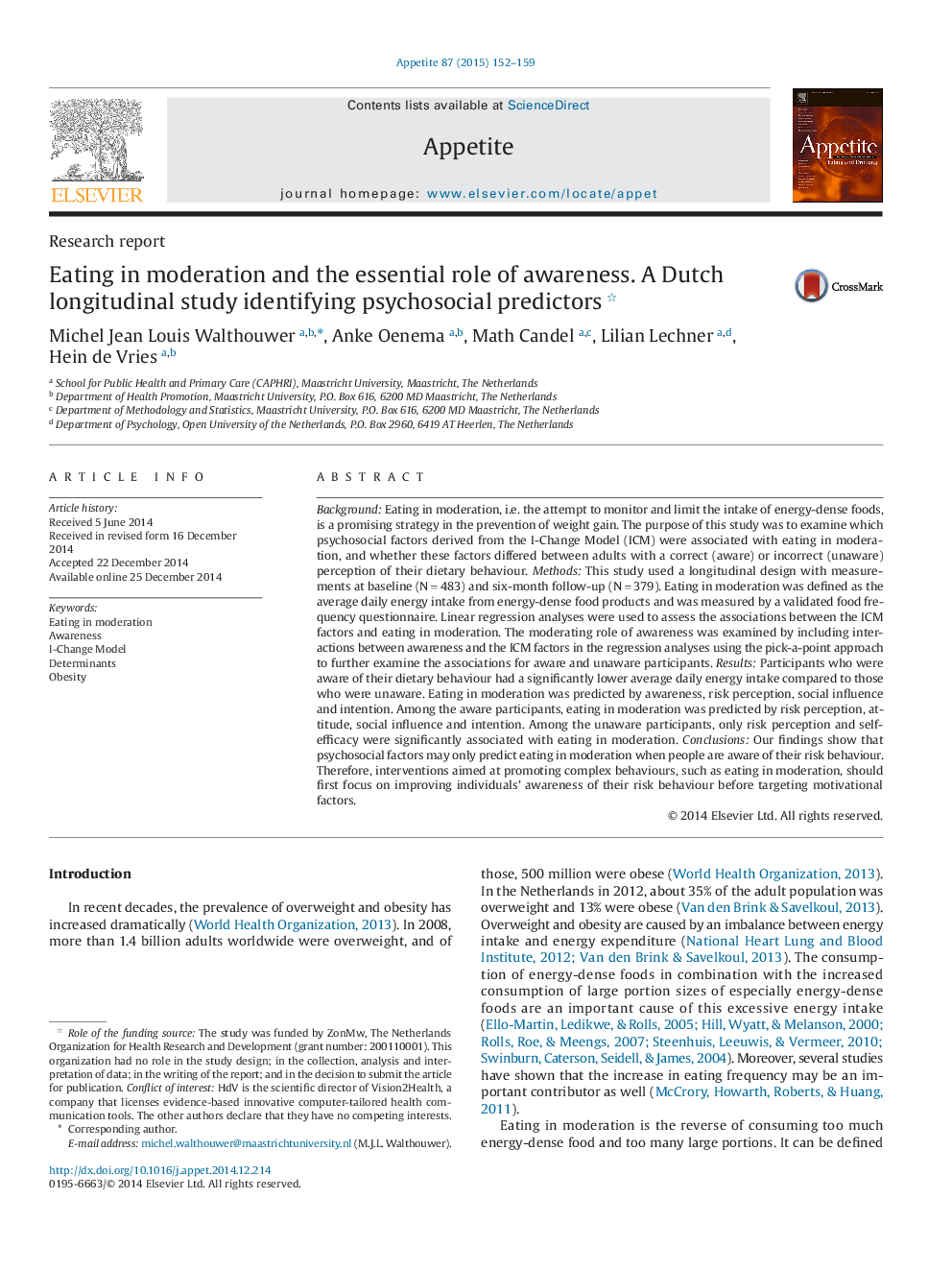| کد مقاله | کد نشریه | سال انتشار | مقاله انگلیسی | نسخه تمام متن |
|---|---|---|---|---|
| 7309273 | 1475393 | 2015 | 8 صفحه PDF | دانلود رایگان |
عنوان انگلیسی مقاله ISI
Eating in moderation and the essential role of awareness. A Dutch longitudinal study identifying psychosocial predictors
ترجمه فارسی عنوان
خوردن در اعتدال و نقش اساسی آگاهی. یک مطالعه طولی هلندی که شناسایی پیش بینی کننده روانشناسی است
دانلود مقاله + سفارش ترجمه
دانلود مقاله ISI انگلیسی
رایگان برای ایرانیان
کلمات کلیدی
خوردن در آرامش، اطلاع، من تغییر مدل عوامل تعیین کننده، چاقی،
موضوعات مرتبط
علوم زیستی و بیوفناوری
علوم کشاورزی و بیولوژیک
دانش تغذیه
چکیده انگلیسی
Background: Eating in moderation, i.e. the attempt to monitor and limit the intake of energy-dense foods, is a promising strategy in the prevention of weight gain. The purpose of this study was to examine which psychosocial factors derived from the I-Change Model (ICM) were associated with eating in moderation, and whether these factors differed between adults with a correct (aware) or incorrect (unaware) perception of their dietary behaviour. Methods: This study used a longitudinal design with measurements at baseline (Nâ=â483) and six-month follow-up (Nâ=â379). Eating in moderation was defined as the average daily energy intake from energy-dense food products and was measured by a validated food frequency questionnaire. Linear regression analyses were used to assess the associations between the ICM factors and eating in moderation. The moderating role of awareness was examined by including interactions between awareness and the ICM factors in the regression analyses using the pick-a-point approach to further examine the associations for aware and unaware participants. Results: Participants who were aware of their dietary behaviour had a significantly lower average daily energy intake compared to those who were unaware. Eating in moderation was predicted by awareness, risk perception, social influence and intention. Among the aware participants, eating in moderation was predicted by risk perception, attitude, social influence and intention. Among the unaware participants, only risk perception and self-efficacy were significantly associated with eating in moderation. Conclusions: Our findings show that psychosocial factors may only predict eating in moderation when people are aware of their risk behaviour. Therefore, interventions aimed at promoting complex behaviours, such as eating in moderation, should first focus on improving individuals' awareness of their risk behaviour before targeting motivational factors.
ناشر
Database: Elsevier - ScienceDirect (ساینس دایرکت)
Journal: Appetite - Volume 87, 1 April 2015, Pages 152-159
Journal: Appetite - Volume 87, 1 April 2015, Pages 152-159
نویسندگان
Michel Jean Louis Walthouwer, Anke Oenema, Math Candel, Lilian Lechner, Hein de Vries,
